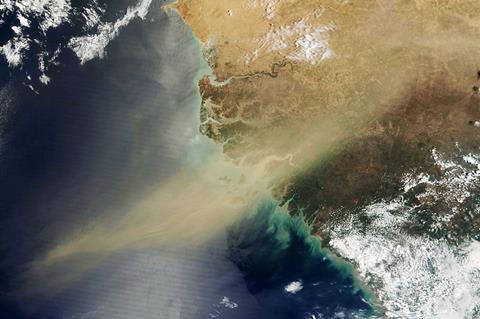The AFROSCREEN project, financed to the tune of €10 million by Agence Française de Développement (AFD), has been working since 2021 to set up or strengthen sequencing platforms and build an operational network for monitoring emerging pathogens in West and Central Africa and Madagascar.

With 25 partners in 13 sub-Saharan African countries, AFROSCREEN is designed to improve the detection, characterization and genomic surveillance of emerging pathogens for epidemic preparedness and response. The AFROSCREEN project, coordinated by ANRS Emerging infectious diseases, an autonomous agency of Inserm, as part of a consortium with Institut Pasteur and Institut de recherche pour le développement (IRD), was launched in July 2021 to respond to the Covid-19 epidemic.
The results were presented at the AFROSCREEN regional symposium on May 29 and 30, 2024 in Dakar, Senegal, in the presence of all scientific, technical and financial partners, as well as CDC Africa and WHO.
Genomic sequencing
Today, genomic sequencing is an essential public health tool for detecting and tracking infectious pathogens with epidemic potential. A better understanding of the genome of pathogens and their genetic evolution can guide the production of diagnostic tests, drugs and vaccines, leading to better control of epidemics at both local and international levels.
The Covid-19 pandemic highlighted the disparities between continents in terms of surveillance and sequencing systems. At the end of October 2021, of the 4.6 million sequences shared on the free and public GISAID tool worldwide, only 49,000 came from the African continent, representing less than 1% of Covid-19 cases diagnosed there.
With this in mind, AFROSCREEN was designed to improve preparedness and response activities at regional level, support decision-makers in defining public health priorities in each partner country, and produce data to feed into the international public health effort.
Symposium
On May 29 and 30, 2024, the ’AFROSCREEN Regional Symposium: a genomic surveillance network for emerging pathogens’ was held in Dakar, Senegal. The event brought together partners, CDC Africa and WHO representatives, health authorities from the countries concerned and international funding agencies. The aim of the symposium is to take stock of the project’s scientific and technical achievements, and to discuss future prospects for capitalizing on this network.
Three years after its launch, the AFROSCREEN project has made it possible to:
- improve the SARS-CoV-2 detection and sequencing capabilities of the 21 laboratories in the network by providing equipment (sequencers, reagents, laboratory materials). Capacity building in these laboratories has contributed to an increase in the number of sequences deposited on GISAID by countries (around 10,000 sequences deposited);
- training over 150 people in charge of sequencing, analysis and data sharing, including biologists, technicians, data managers, bioinformaticians and staff in charge of surveillance and epidemiological investigations;
- create and run the AFROSCREEN network of partner laboratories, comprising 25 partners in 13 African countries;
- set up, reactivate or support 77 sentinel sites in 11 countries for epidemiological surveys and sample collection, as well as for surveillance of SARS-CoV-2 and its variants.
This network can now be rapidly mobilized in the event of the emergence or re-emergence of pathogens with high epidemic potential beyond SARS-CoV-2: influenza, Mpox, dengue, Lassa, chikungunya, Marburg, etc.
To find out more, and discover country-by-country initiatives, visit the AFROSCREEN project website: AFROSCREEN: Strengthening Sequencing Capacities in Africa
The GISAID open-access platform enables the rapid sharing of data (genetic sequences and virus-related clinical and epidemiological data) on influenza and SARS-CoV-2 viruses.







No comments yet